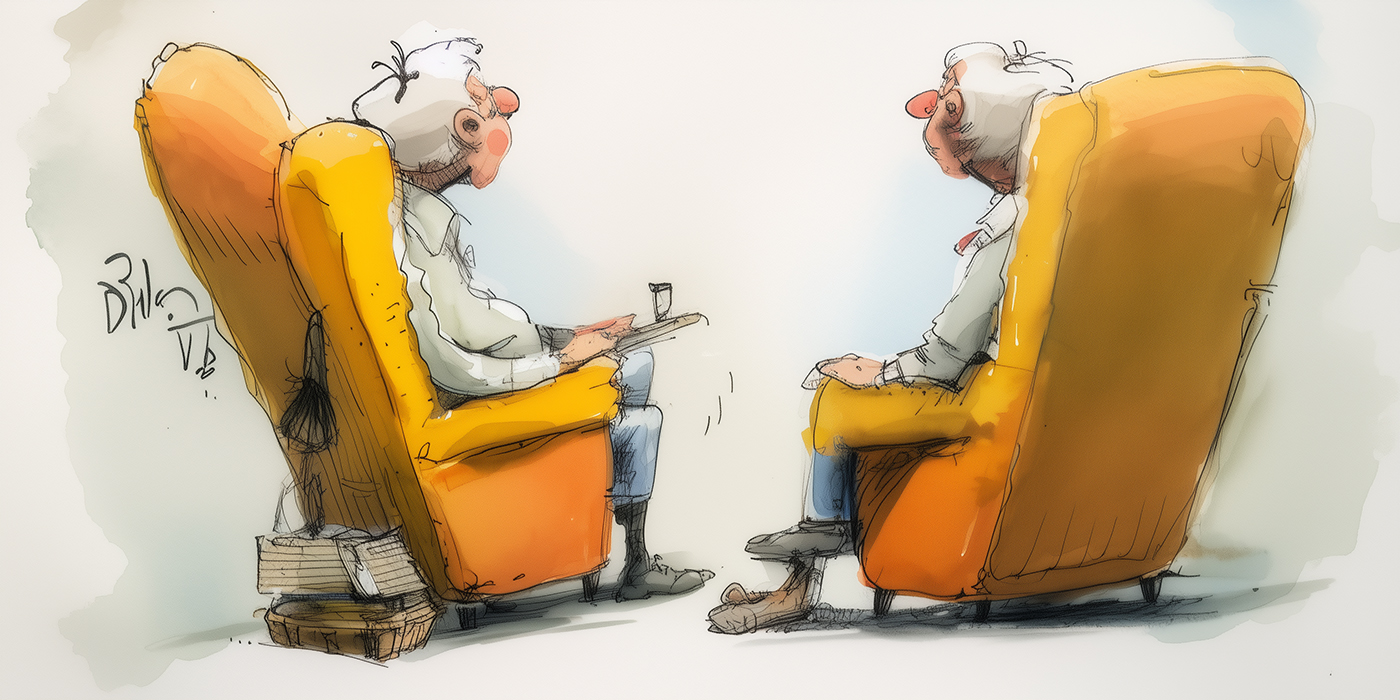Here is a practical tool which helps me turn my eyes, my thoughts, my mouth, and my ears in the right direction in the morning, pointing towards my recovery rather than my relapse.
The basic idea is to complete a quartet of related recovery disciplines: reading, writing, listening to a recording and calling my sponsor. It might seem time-consuming to do all four, but just a few minutes on each seems to make a difference.
Read It
Use my eyes to strengthen my recovery
I read something to remind me that unless I change my attitude before I leave the house, I will soon encounter something that is not to my liking, get a resentment, and begin down a poisonous path. My reading options in the morning include sections from the White Book, AA literature, recent inventories, and daily meditation books along with lists of affirmations.
Reading is done through the eyes. As a sexaholic, my eyes can be a bit problematic to say the least. Once I leave the house I will need all the help I can get to keep them pointed in the right direction. The hope, faith and recovery I find in these texts are surely the right direction
Write it
Use my thoughts to strengthen my recovery
I have various writing options in the morning. A gratitude list reminds me that whatever I think my problems are, they are insignificant compared to the waking reality of the active sexaholic experiencing “the hideous Four Horsemen—Terror, Bewilderment, Frustration, Despair” (Alcoholics Anonymous p. 172).
Journaling can help me to get in touch with lingering feelings of distress or fear that my very clever brain might interpret as justification for a resentment or a lustful attitude. The disease seeks to resolve a crisis that probably does not exist by tilting its balance in the direction of addiction. Writing puts a hedge around this choice, and a sign on it saying: “Don’t do that!”
Listen to it
Use my ears to strengthen my recovery
I have an MP3 player loaded with a series of voice recordings such as extracts from the Big Book, the White Book, summaries of Step work, as well as AA and SA tapes. This gadget is fun, but a cassette recorder is an equally powerful tool.
In addition to my eyes, my ears are also directly connected with my brain—the place where I sift good ideas from bad ones. These recordings contain a lot of good ideas that have originated outside of my own thoughts—a set of recovery ear-muffs, if you will, that help me filter out toxic ideas before they become the rationalization for destructive actions.
Say it
Use my mouth to strengthen my recovery
I will have many opportunities to offend others and hurt my reputation with my mouth later in the day, so I may as well begin the day with a low-risk use of my vocal chords; i.e., call my sponsor. Having a good sponsor is a sound foundation for recovery. Actually calling him is even better.
Upon receiving a two-year sobriety chip, a London member was asked: “How did you do it?” He replied: “I called my sponsor every day.” I thought, “His program is unnecessarily simple. Even an idiot could do it.” About eighteen months later I started doing it. It took me a while to graduate to idiot status!
Anonymous






